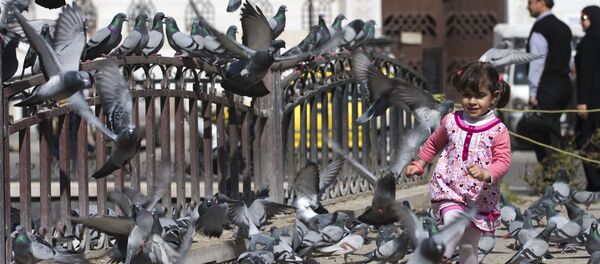"The violations we have seen were carried out by regional states. Many regional countries don’t like the ceasefire agreement. They don’t want it to be implemented," Qadri Jamil, one of the leaders of the Syrian Popular Front for Change and Liberation, told a press conference in Moscow.
On February 22, Russia and the United States reached an agreement on the ceasefire in Syria. The ceasefire took effect at midnight on February 27, Damascus time. It does not apply to terrorist groups operating in the country. The UN Security Council unanimously adopted Resolution 2268 endorsing the Russia-US agreement shortly before the ceasefire came into force.
On Sunday, Jamil told Sputnik that the UN Security Council would monitor the Syrian ceasefire and draw conclusions on violations of the truce, including those carried out by Turkey.
In recent weeks Turkey has been shelling towns in northern Syria. Ankara has claimed the Syrian Kurds have links to the Kurdistan Workers’ Party (PKK), which is fighting for Kurdish independence from Turkey and is considered a terrorist organization by Ankara.
Turkish Presdient Recep Tayyip Erdogan has criticized the Syrian ceasefire deal, arguing Syria's Kurdish Democratic Union (PYD) and the Kurdish People's Protection Units (YPG) should be excluded from the ceasefire process in the same way that the Islamic State, outlawed in many countries including Russia, was.



